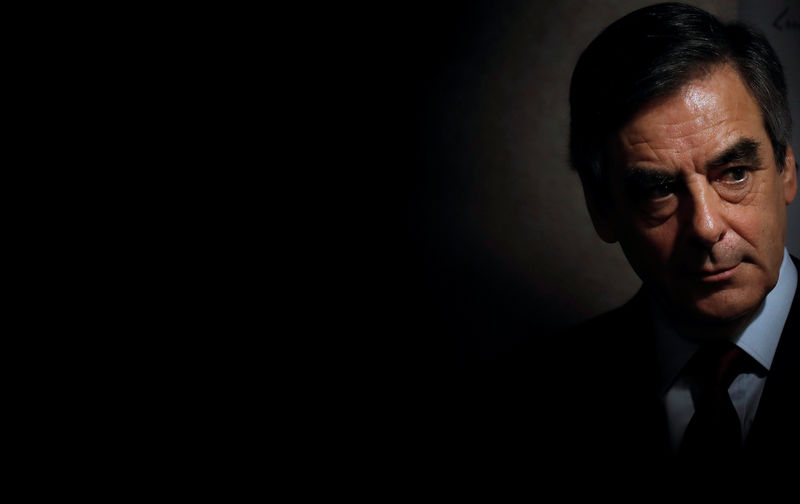By Brian Love
PARIS (Reuters) - The favourite to be France's next president sought on Wednesday to quell a revolt over his proposal for partial privatisation of public health insurance, deleting the proposal from his campaign website and denying he had ever suggested it.
Francois Fillon, a fan of Britain's Margaret Thatcher, won the backing of his centre-right party two weeks ago to run for president on a programme of strident reform and massive public spending.
Hit by mounting discontent within his Les Republicains party, the former prime minister went out of his way to disown a policy that a poll last week showed was opposed by nine in 10 voters.
He denied having ever proposed part-privatisation of health insurance and purged his website programme of the proposal that showed he had indeed proposed such a move.
Visiting a Paris hospital, the 62-year-old said on Wednesday he wanted to save the social welfare system that was established at the end of World War Two, and in particular a system of comprehensive public provision in the domain of healthcare.
"Never did I want to, or would I want to, 'privatise health insurance'," he said. "No, I do not want to draw a distinction between major and minor health risks."
That statement followed a Tuesday meeting with politicians in his own camp after calls from several for clarification in the face of sharp criticism from opponents and signs of deep concern among voters.
It jarred with the proposal that was in full view on his website - www.fillon2017 - on Monday but which was deleted some time late on Tuesday.
The now-vanished sentence was: "I propose focussing universal public insurance on serious and long-term illnesses, and (focussing) private insurance on the rest".
A Reuters check of older versions of the website page showed the original was still there on Dec. 12 and that it had disappeared on Dec. 13.
On Wednesday, the space left by the deletion was filled by a reference to a newspaper article in which Fillon said he wanted to protect the welfare system, but with no reference to private insurance.
Fillon's campaign spokesman Jerome Chartier declined to comment when contacted for an explanation.
Opinion polls ahead of the presidential election that takes place in two rounds next April and May show Fillon is clear favourite to win.
Seizing on the apparent contradiction in Fillon's stance, the health minister of the current Socialist government told reporters the controversy was not about to disappear.
"This programme is worrying, intimidating and confusing," Marisol Touraine said. "It's hard to fathom just what he is saying at this stage," she said in parliament.
